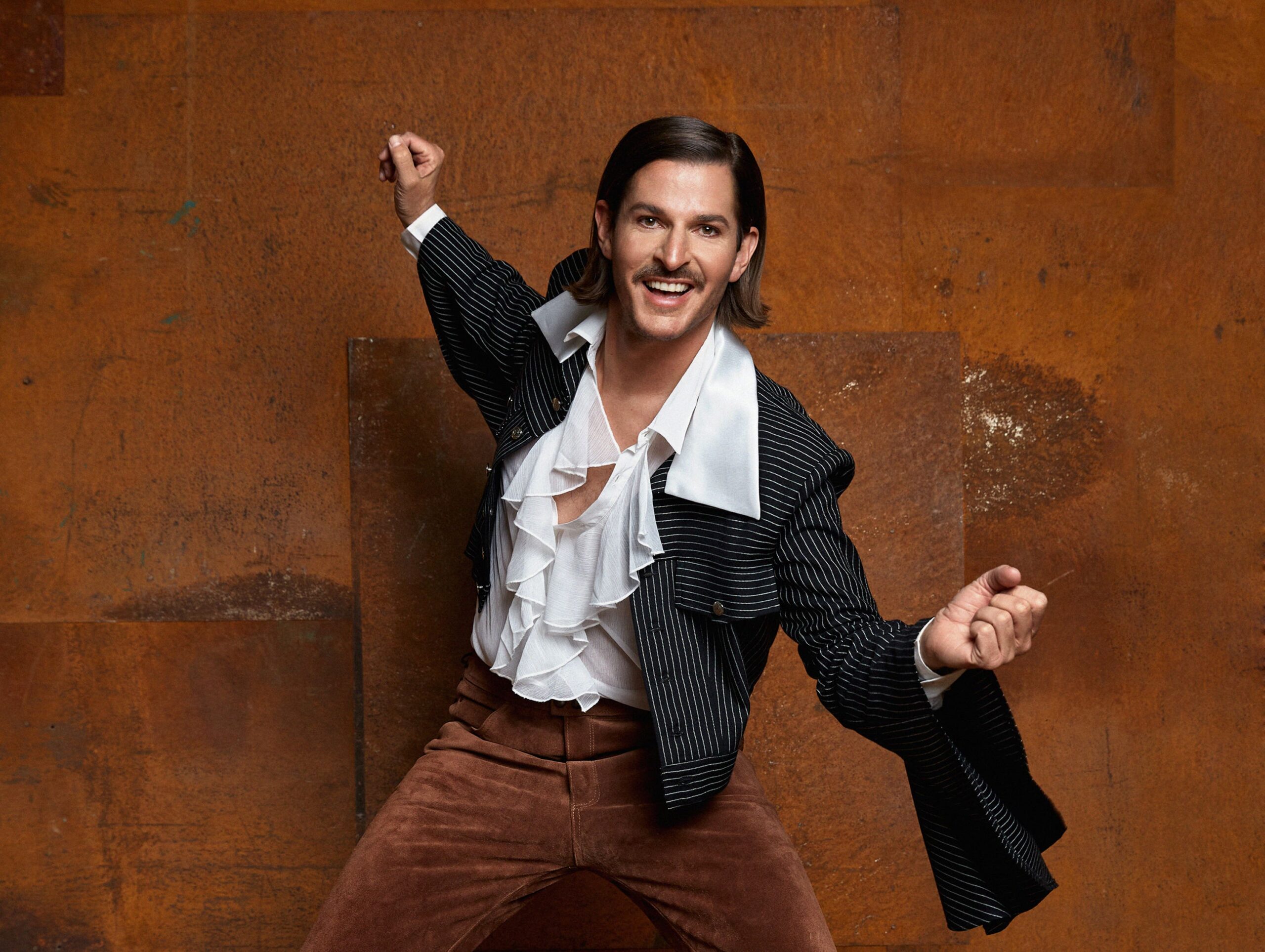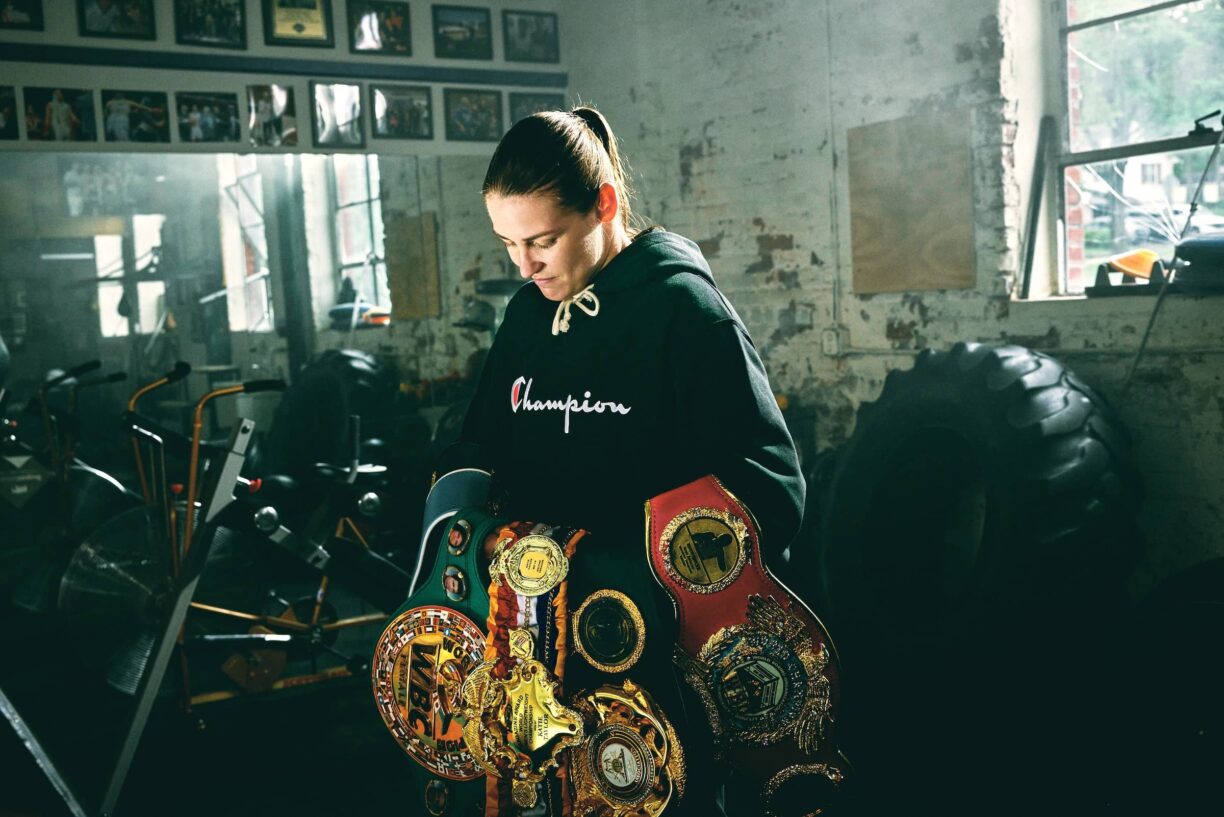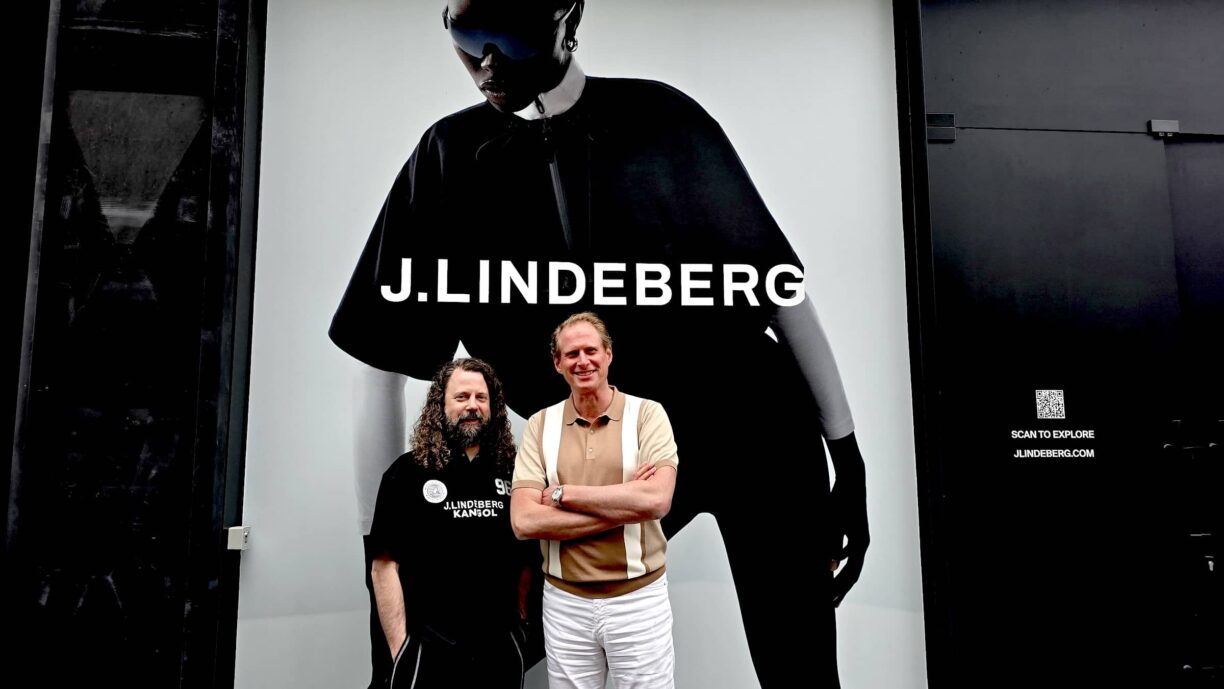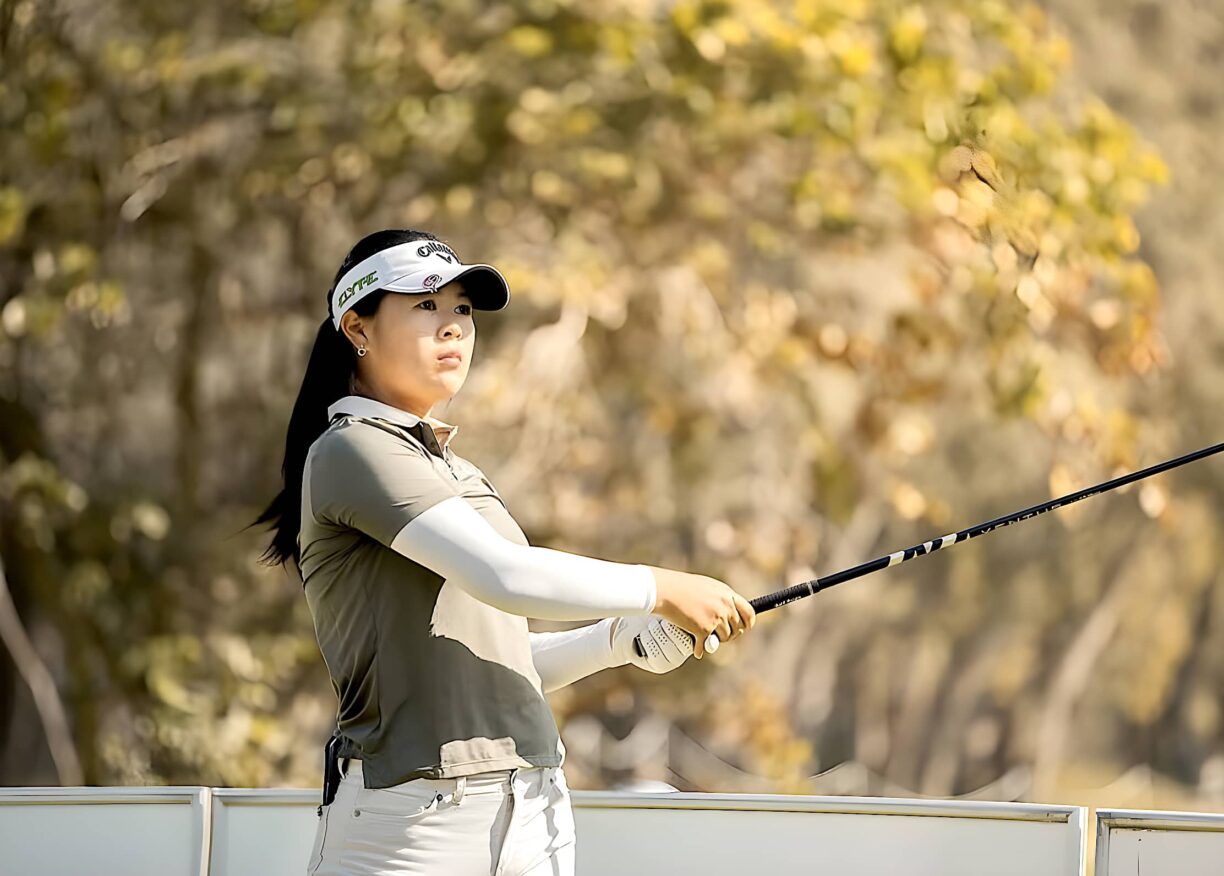Like ultimate sandwich fillings and best ways to spend a day off, the definition of ‘hero’ might mean different things to different people. For LGBTQ+ icon and ‘king of UK nightlife’ Glyn Fussell, it’s this…
“It’s about reclaiming your own hero status. We’re all taught so many stipulations around success – you must have a mortgage, you must have a car, you must go to university.
Well, I don’t have any of that, but what I do have is a lot of joy in my life,” says the 41-year-old, who co-founded Mighty Hoopla festivals and Sink the Pink, the UK’s largest LGBTQ+ collective and club night.
“And I’m surrounded by people that have similar amounts of joy in their life – and they’ve become those people because they’ve essentially said ‘f*** you’ to society’s pressure to fit the norm and navigated their own path.
One that’s based on, ‘No I don’t want that’, or, ‘That doesn’t work for me, this is how I want to really shape my life’, and then you find your own success, your own lane.
“For me, that’s the ultimate hero status,” Fussell concludes. “I wasn’t told how to do this, I wasn’t given this success, I figured it out, I navigated it, I created my own path. That’s so much more rewarding, so much more interesting, and so much more difficult as well.”
For anyone this strikes a chord with, that difficulty is no doubt all too familiar. But, if you’re at a point in your path where things are feeling a little shaky or blocked, Fussell’s words are a tonic.
A bright neon ‘keep going’ sign that pops up just when you need it – and that’s really how it feels listening to his new podcast series, We Can Be Heroes.
Fussell’s first foray into the podcast world, each episode sees him chatting with a different guest.
The first series has Skunk Anansie musician Skin, Drag Race star Bimini Bon Boulash, comedian Rosie Jones, Help Refugees founder Josie Naughton and singer Beverley Knight, to name a few.
Being heroes on their own paths “is something all of our guests have in common,” says Fussell, who delves with them into the twists, turns and lessons they’ve faced along the way.
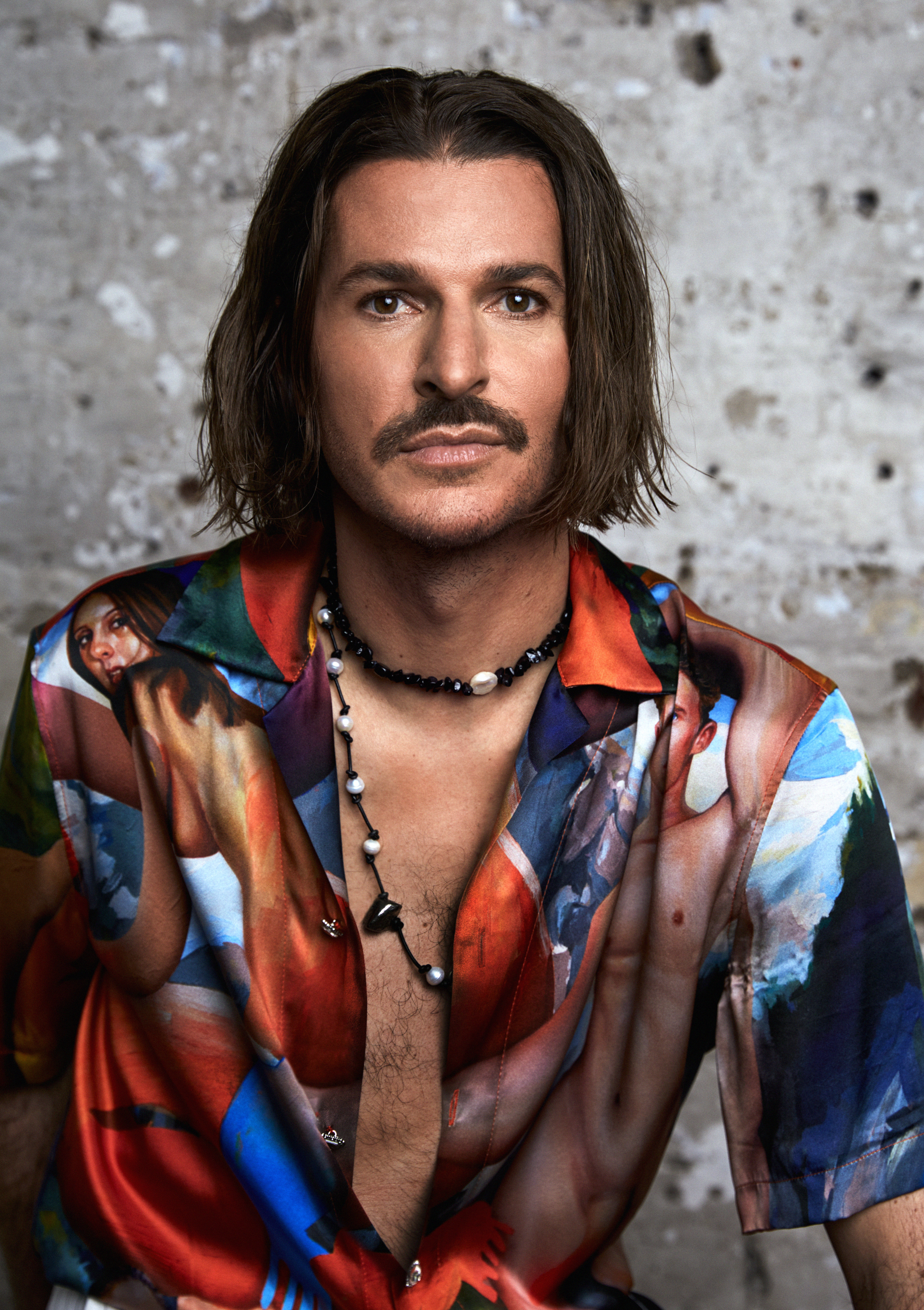
It’s a big gear change from the party and late-night club scene that previously dominated his career, but one he was very ready for.
“For the last 15 years, I’ve had an amazing and very colourful career and it’s been absolutely wonderful, but you only really get to a certain level of depth [with people].
As I became older, there was a real juxtaposition because during the day, I was having conversations that were really resonating with me, really touching my soul, and I’ve met a lot of inspiring people who’ve created unbelievable things around them.
But the conversations I was having, particularly publicly [and at work], were about surface level.”
He realised he “needed more”. The pandemic played a big part too, particularly with nightclubs suddenly being closed, propelling him to look at his own emotional wellbeing as well as what he wanted to do next.
“I am someone who, not only is the cup half full, the frosting on the top is running over, but for a while there, everything was pulled away from me in lockdown.
I got depressed, I got really low. And I thought, ‘If I feel like this, God, some people must be feeling really, really on the edge’.”
He says he’d never “had time to be introspective before”. Growing up in a big working-class family (Fussell is one of seven siblings) in Bristol, he says he became used to always “moving at a million miles an hour”.
“Lockdown has been horrendous for the world, but all of a sudden, I had time. I started going to therapy, I knew I’d been the king of brushing things under the carpet – ‘oh I’ll deal with that later!’ – and I started to take care of myself. And it became a domino effect of – it sounds corny – but of self-love,” he reflects.
“And the weird thing is, once you unlock those things, it enables you to do all the other stuff. You want to start connecting more and having those conversations.
I’ve seen my family more than ever before, I’m in probably the healthiest relationship I’ve ever had, and a lot of that is about connecting with yourself and being honest and grounded.”
All things combined, the podcast felt like “a natural evolution”. Fussell teamed up with a producer and they sat down and mapped out their ideas. “Everything in my wildest dreams that I wanted the podcast to achieve, it is achieving, in terms of the messages and the subjects we’re covering,” Fussell enthuses. “So I’m thrilled and I really am loving having these conversations. All the guests have been incredible.”
While all come from different fields, there’s a common thread of having “known hardship or struggled” and having an “awesome story of how they overcame that and found triumph”.
“I love it when someone shuts down misconceptions of what people think they’re supposed to be, whether that’s around disability, gender, colour or anything,” says Fussell, “when I’m with someone who does not play by the rules and sticks a finger up to society. Which is what I’m trying to do, basically.”
Listen to We Can Be Heroes with Glyn Fussell on Apple, Spotify and all podcast providers.

